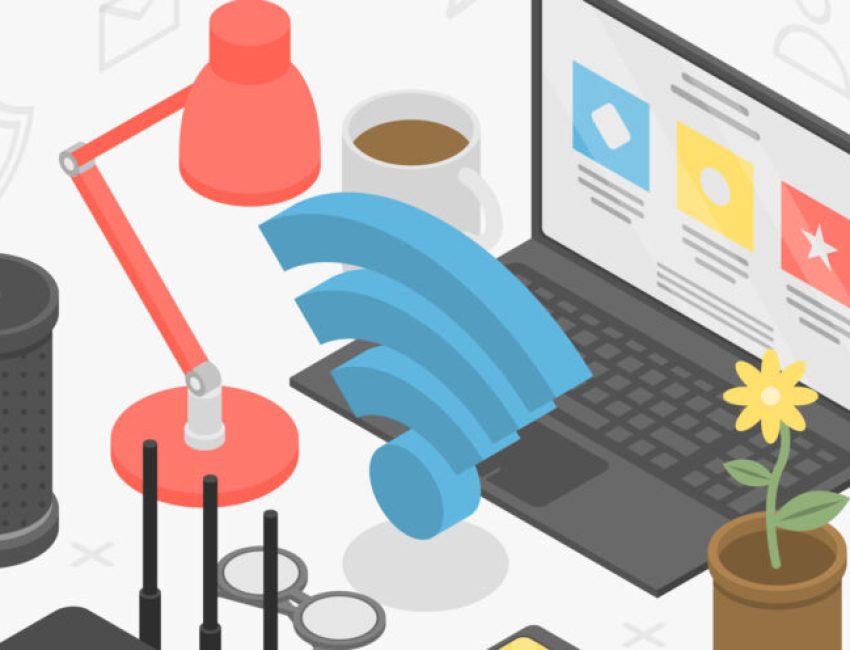VoIP and Landline: What to Choose
Many businesses are cutting the landline and switching to VoIP. For them, it saves money and offers several advantages. However, you may be unaware at just what switching from landline to VoIP can do for you. Let’s look at what it can do by comparing landline and VoIP.
What is VoIP?
VoIP, or Voice over Internet Protocol, connects voices over the Web. A VoIP phone uses the Internet to make calls, and you can contact landline numbers or any device that has a connection to the Internet. It’s more versatile than landline, and it can be cheaper due to less long-distance fees and equipment needed.
Which is More Expensive?
As mentioned, landline can be more expensive when calling long distance. There is a reason for this. With a traditional PSTN network, you need a dedicated circuit. The longer your call is, the more circuit you need, thus a higher fee. Using the Internet, you don’t need to pay any extra fees to make a long-distance call. Also, you pay what you need, so monthly fees can be less. VoIP can be on any device that has Internet, too.
What About the Features?
Landlines have some advantages. They are more resistant to outages, can last for decades, are less prone to tapping, and have some features like voicemail, call forwarding, and teleconferences. However, VoIP has many other features. You can call from any device that has an Internet connection. It’s much easier to scale the service, adding more or fewer users. VoIP can also integrate with other channels. Calling anonymously is easier, along with voicemail-to-text services.
The Tech
A landline uses a PSTN, or Public Switched Telephone Network, which is a copper wire. It is immune to outages and quite useful, but it’s also expensive. Whether you’re maintaining it or building, it’s costly. Meanwhile, a VoIP uses your LAN, or local area network, to connect. When you make a voice call, the audio converts to digital data and is sent over through the Internet. Your VoIP connects to another device to connect to it. Thus, the call.
What Does it Require?
The landline needs wire and devices. You have to install, upgrade, and maintain everything. Meanwhile, a VoIP service just needs a network and an Internet service to transfer voice data. You need a power supply as well. Depending on the router, you may need an upgrade.
Reliability
VoIP still has a bit to go in tackling emergency calls and power outages. With the former, the 911 system uses landline and it has yet to make the change totally. Landlines use the phone company to power them. This isn’t to say the VoIP is unreliable, but it does need the Internet and power supply, so have backup ready.
Integration
VoIP can integrate with texts, email, and video calls. Meanwhile, landlines can call and receive VoIP numbers, but that’s about it. What Devices are Compatible VoIP can use various devices like smartphones, computers, apps, handsets, and much more. As long as the device has a mic, speaker, and an Internet connection, it can be a VoIP. It also doesn’t have any number tied to it so you can get calls on any device. With a landline, the number is tied to the wireless and wired phones.
What Works Best?
Consumers – For the consumer, VoIP is more affordable because it comes in a bundle. However, for a home consumer, some benefits may not be realized unless they make long-distance calls regularly.
Long Distance – There is no long-distance costs with VoIP. Not only that, but the audio quality is about the same. Nowadays, there’s no reason to stick to landline for these calls unless you like burning money.
Plans – With a landline, you have to buy it separately from your Internet. VoIP, meanwhile, comes with services like Internet. You can save money, and you don’t have to worry about bandwidth unless you call a lot.
Emergency Calls – Landlines are good for emergencies due to being less prone to outages. However, VoIP is quickly being integrated to 911, and Canadians have to provide support to it. However, some may want to have a landline handy just in case of an emergency.
Considerations for Business – Switching from landline to VoIP costs less and it’s easier to integrate calls. This can also depend on how many calls you make and your Internet service.
Long Distance – If a business has to make long distance calls, it can be costly if you’re using a landline. Meanwhile, the VoIP manages to cut the cost, allowing you to talk as far as you’d like with high quality calls and no fees.
Bandwidth – You do need more bandwidth to use VoIP if you’re a larger organization. However, it’s not that significant, especially if you were video conferencing already. Uptime The downtime you experience can be reduced through fully-managed plans. Depending on your business, you shouldn’t experience much downtime.
Advanced Calls – It’s much easier to integrate voice calls. Because it’s digital, it’s much easier to archive, convert, and track voice calls. This can help with tracking call performance and tracking other analytics too.


